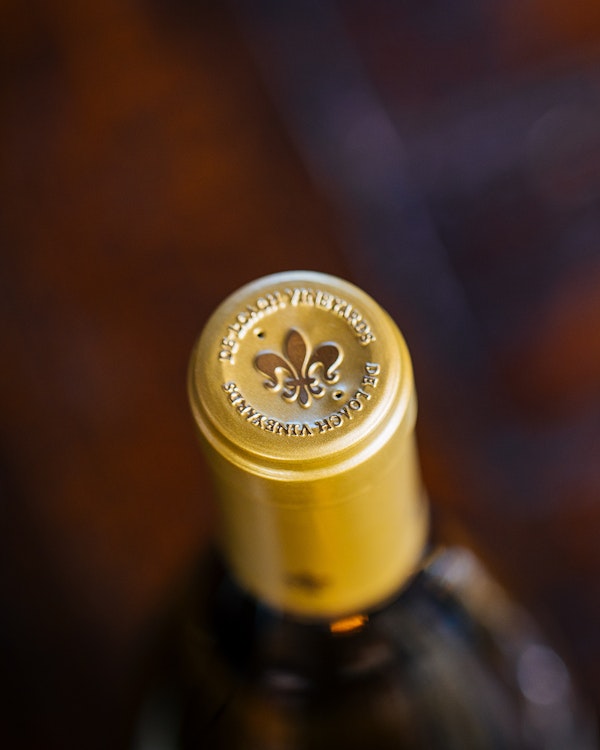

In that spirit, we focus on eco-friendly farming practices that bring quality and consistency to our wines and longevity to the vineyard. In July 2008 we were awarded our organic certification by the CCOF (California Certified Organic Farmers). We also committed ourselves to the application of biodynamics, beginning with the conversion of the almost 17-acre estate vineyard from sustainable to biodynamic farming methods, which involves the use of cover crops, the application of biodynamic specific preparations, and composts, and the maintenance of biodiversity within the estate. In December 2009, Demeter granted us biodynamic certification for both our estate vineyard and one acre garden.
Per the guidelines of biodynamics, we are as attentive to the other aspects of our property and the community as we are to our vines. We maintain and encourage biodiversity on the winery estate in the Theater of Nature with chickens, a thriving beehive, and a diverse vegetable and herb garden that includes the medicinal plants we use in the compost preparations such as yarrow, chamomile, and dandelion. In the holistic spirit of biodynamics, we continue to cultivate a sense of community with our neighbors, growers, and natural surroundings.

It was developed by Rudof Steiner, whom most people know as the founder of the Waldorf School. The philosophy behind the school is that children learn in natural ways and education should support and amplify these natural processes. Biodynamic farming is gaining supporters in the wine business because it does the same thing for grape vines: amplify the combination of physical factors that make a vineyard site unique. That combination of factors is also known as “terroir” so, you can think of Biodynamic farming as a way to allow the vineyard to express terroir.
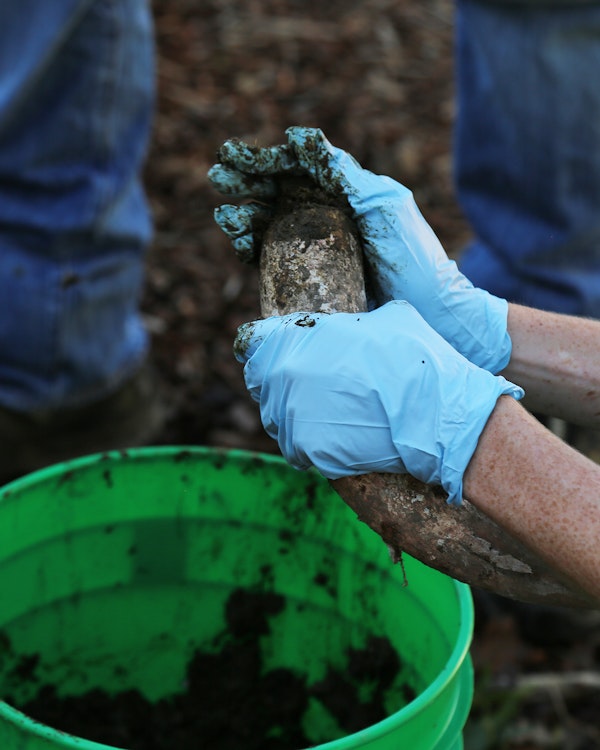
Energetic life
Like organic agriculture, Biodynamic farming eliminates the use of synthetic chemicals to fertilize plants and fight pests. But where organic viticulture focuses almost exclusively on soil, Biodynamic farming attunes winegrowers to the energetic life of the soil, the vine and its fruit. One of the simplest examples of this is the way that nature changes its focus during terrestrial seasons. During winter in the northern hemisphere, the sun is low, solar energy is weak and the earth is warm relative to the air. So, grapevines “go with the flow” by putting their energy into their roots below the ground rather than expend energy above ground. During their ripening season, on the other hand, solar energy is increasing and the soil is cool compared to the air. Now the vines put their energy into rising toward the heat of the sun even as the sun itself rises in the sky due to the Earth’s transit around it. During the seasons in between, the vines turn their energy to intermediate forms of matter, such as the liquid sap in their stems and leaves.
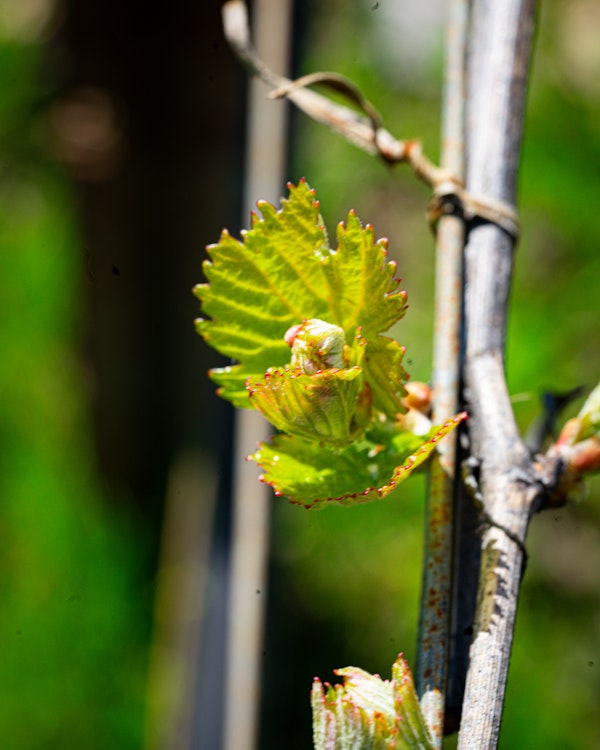
Natural cycles
Much of Biodynamic farming is concerned with thinking along natural cycles — making sure plants are aligned with and complete the cycles fully. This is why Biodynamic winegrowers apply natural “preparations” that gently stimulate the seasonal forces already at work. The spring preparation, for example, includes pulverized quartz, a light-reflecting matter. This preparation is sprayed onto the vines just as they are seeking sunlight to turn their flowers into fruit. During the previous six months, the quartz was buried in the vineyard so that its contribution would mirror that of the vine: rising from the earth toward the sunlight. (Those who doubt that quartz can do any good should consider that their wristwatch may well be powered by a tiny grain of the same material.)

Habitat for beneficial plants and insects
Another important tenet of Biodynamic farming is that a farm should be a self-sustaining system — one that generates compost, provides habitat for beneficial plants and insects and feeds its human farmers. In practical terms, few modern wineries have enough land or labor to fulfill this requirement, so Biodynamic growers often cooperate with each other and with nearby farms to procure manure for compost, materials for “preparations” and other resources.

We are part of a larger system
This too reminds us that we are part of a larger system and succeed by harmonizing with it. At DeLoach, the half-acre certified organic garden thrives with life. Sheep and chicken reside beside the garden’s seemingly endless variety of fruits and vegetables; five types of melons and fifteen different heirloom tomatoes grow hearty in the sun while a colony of honeybees pollinate the flowers. The organic garden produces food for friends and employees year-round. During harvest, the entire team takes time to share in a lunch prepared by the chef using fresh produce from the winery garden and honey from the resident bees. four times a year, friends, growers, fellow winemakers and their families are invited to the winery guesthouse to share dinner and taste wine from all over the Russian River Valley. At the end of the day, Biodynamic farming at DeLoach is about community and quality of life.
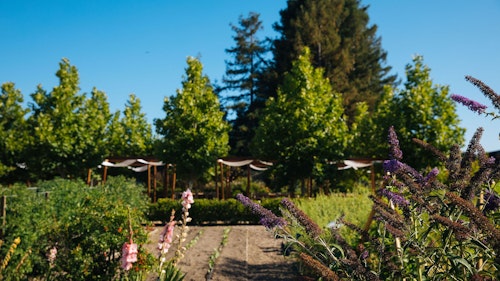
Explore
Theater of nature
DeLoach Vineyards' Theater of Nature offers an immersive experience, showcasing sustainable farming and biodynamic practices and is a haven to a diverse range of plants, animals and insects.

Theater of Nature
Our gardens are a haven for a diversity of plants, animals and insects. We maintain year-round blooms to feed the bee population and provide habitat for other beneficial insects, which along with our bats, help us control our pest populations. Sheep, goats, chickens and owls play a slew of other helpful roles from weed to rodent control. Plants are rotated to avoid pest problems and give the soil a chance to rest.
Nutrient-fixing cover crop, in-house made compost and biodynamic preparations that include medicinal plants such as yarrow, chamomile and dandelion, help replenish our soil in the garden and the vineyards. These flourishing gardens — known as the “Theater of Nature” — feed our guests and serve as an educational platform to teach our visitors about our sustainable practices.
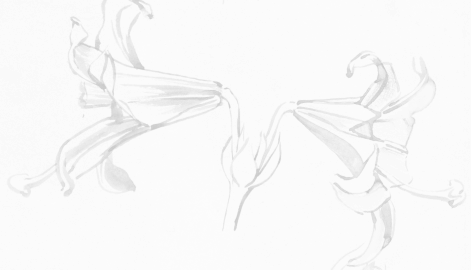

Discover De Loach


Events
VIEW EVENTS